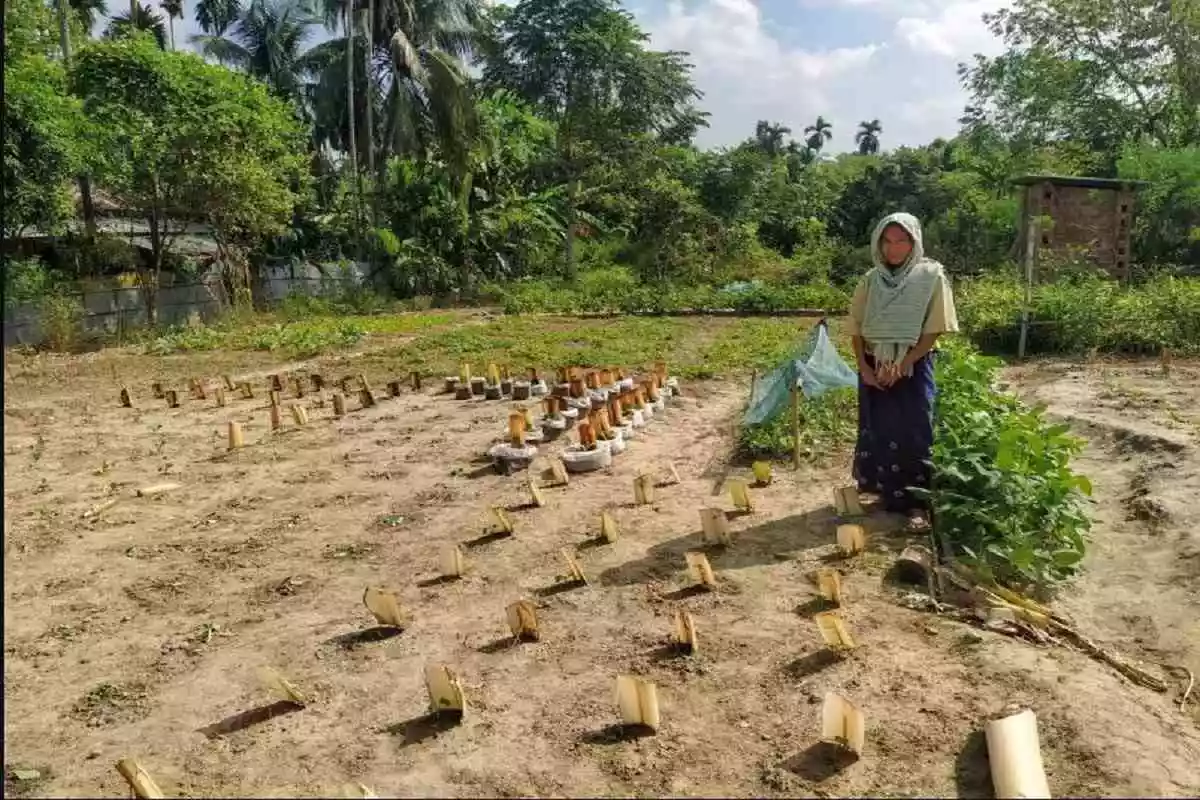
On the banks of the Sumili River lies the quaint village of Bairagipara in the West Tripura district. As this river – the lifeline for the 50-odd agriculture families in the village – swells during the monsoons, Bairagipara is frequently cut off from the rest of humanity.
Hanna Debbarma, a tribal farmer belonging to the Tripuri community, says, “Despite being 30 kilometers from the capital city, it feels like 3,000 kilometers during the monsoons. For us women, it feels even more. A bridge is much needed here.”
Ironically, be it sunshine or rain, vegetable traders from far away manage to reach the area beyond the Sumili river.
Hanna Debbarma continues, “We grow paddy and historically have collected wild vegetables from the forest. The concept of growing vegetables commercially is fairly new to this place.”
Families grew vegetables for self-consumption and only during the Rabi season. When SeSTA started work in this village, it provided an opportune space for interventions, taking into consideration the relative isolation of the place, the prospects of diversifying livelihoods and addressing the nutrition need of the community.
The concept of organic farming through a nutrition garden model was introduced to the women farmers in this village. Hanna was the first farmer in the village to take the plunge.
“The finest aspect of an organic nutrition garden is that we largely use the resources available around us for growing diverse vegetables. This is very different from the way we grow rice where we use so many chemical inputs. Nutrition garden ensures that our families eat healthy vegetables.”
Hanna has also started making Rs 9,000 every month by selling vegetables in the market.
She beams, “My vegetables are in high demand in the market. Imagine the change if all the families in the village start growing organic vegetables. We might have difficulty in crossing the Sumili river but our vegetables will definitely cross, be it monsoons or any other season.”
To this end, Hanna has been working to convert the entire village to adopt organic practices. As a Community Resource Person (CRP), she has been at the forefront of training women on organic nutrition gardens. The manifestation of this effort is evident: from a mere two families in the year 2020, today 23 families have invested in nutrition gardens. Women farmers are now regularly trading in organic vegetables in different markets.

















